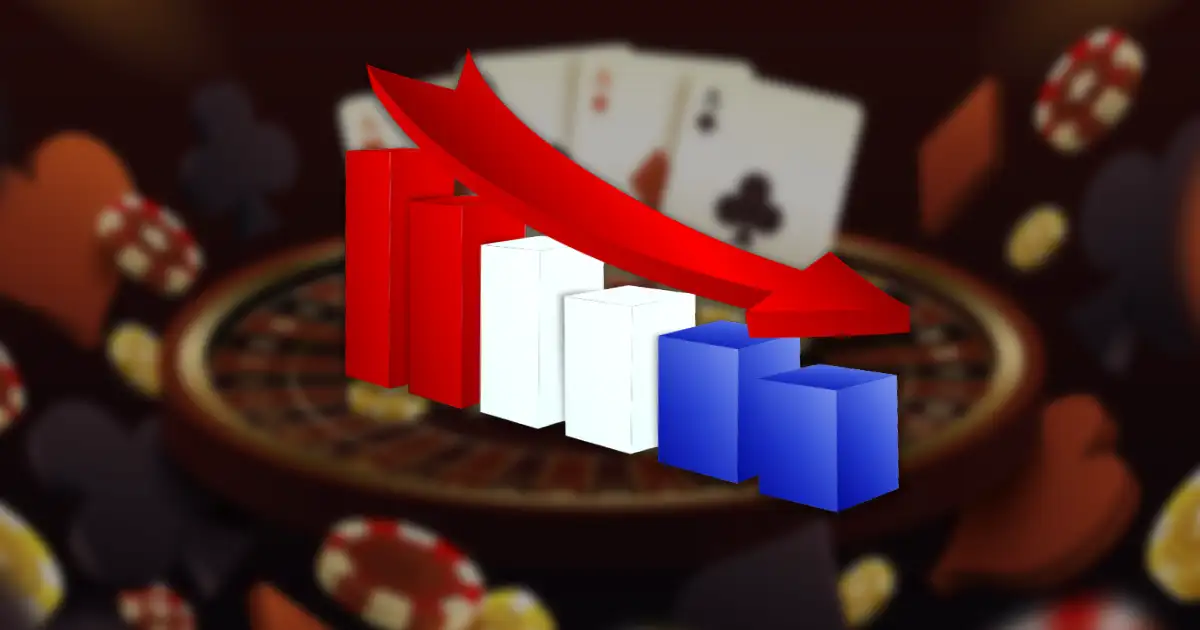Illegal gambling: a growing threat in the Netherlands
In 2024, the Dutch authorities introduced new regulations to govern online gambling. The aim was clear: to limit excessive losses by players and promote a safer environment. The initiative seemed promising. But while the initial results seem positive, a drop in the channelling rate is raising concerns.
New method for calculating the channelling rate
The Dutch Gaming Authority (Ksa) has developed a calculation model that estimates the gross result of games based on consumers’ search behaviour on Google. Specifically, the authority has analysed the searches made by players, focusing only on search terms by brand name, such as ‘TOTO’. Generic terms, such as ‘casino’, ‘bonus’ or ‘casino without Cruks’ (the Dutch exclusion system), were not included in this study.
The idea is that brand-specific searches better reflect players’ intention to engage with particular operators, whether legal or illegal. By comparing this research data with the gross gaming result figures provided by legal operators, the Ksa has been able to develop a model to estimate the size of the illegal market.
The Ksa recognises that this new calculation method is based on a limited number of data, which introduces a high margin of uncertainty. For example, the gross gaming result per search volume for legal operators decreased by 25% after 1 October (reference date), which led the Ksa to temporarily exclude these results from the analysis. In future, a new formula will have to be developed to refine the estimates.
In addition, the Ksa notes that, using this method, the channelling rate has never exceeded 70%, which contrasts sharply with previous optimistic estimates. However, the authority remains cautious and states that these figures will be revised as soon as new data becomes available.
The impact of deposit limits on the market
One of the main reasons for the decline in pipelines is the new regulatory measures introduced by the government. These include strict deposit limits and self-exclusion systems that allow players to better manage their finances and prevent the risk of addiction. These restrictions, introduced to protect gamblers, have been strongly criticised.
According to the figures reported, many players seem to be reacting positively: the number of people exceeding deposit limits has fallen, and the average amount lost per player has dropped. However, some players have turned to unregulated alternatives to escape these limitations, which are perceived as too restrictive. As a result, legal operators are facing unfair competition, with significant financial losses.
The figures are indisputable: losses due to illegal gambling amount to around €305 million. This colossal sum indicates not only the size of the market for unauthorised operators, but also the loss of revenue for the State, which could invest more in regulation and prevention if these sums were redirected towards the legal market.
An industry at risk
The system for regulating online gambling was introduced with great ambitions: to guarantee a safe gambling experience for users while ensuring revenue for the legal sector and the tax authorities. Although the first stages have shown positive results, the number of players using illegal sites remains high, and the government is faced with the need to reassess its measures, in particular deposit limits and other restrictions that appear to favour the black market. Additional measures are envisaged, including more rigorous monitoring of players and closer collaboration with international platforms.
Some gambling experts believe that these measures have been poorly adapted to the context of modern gamblers. Many have criticised the fact that these restrictions have been applied uniformly, without taking into account the diversity of player behaviour. Solutions could include a review of deposit limits, or the introduction of new incentives to attract players to legal operators.
The effectiveness of regulation: Questions about the future
The role of the Ksa is more crucial than ever. With a channelling rate of less than 50%, the question arises: is it time to review the regulatory strategy for the online gambling market in the Netherlands? Should the authorities relax restrictions to redirect players to legal sites?
According to a Ksa spokesman, efforts are underway to improve the situation. However, the road ahead appears to be strewn with pitfalls. For some analysts, it is clear that greater awareness and more flexible protection measures could make a difference, without compromising the objective of guaranteeing a safe gaming environment.
The illegal market: A growing threat
The illegal gambling market remains a growing threat. In addition to the financial losses incurred by legal operators, this unregulated market exposes players to considerable risks, both in terms of data security and game manipulation. The authorities are aware of these dangers, but the task is complex. The appeal of unregulated sites, which are often more permissive and less restrictive, continues to attract a significant proportion of the population.
Illegal operators are not only an economic problem, but also a public health challenge. Without proper regulation, these sites escape all control, exposing players to irresponsible gambling practices and potential scams. What’s more, the lack of regulation makes it difficult to appeal in the event of a dispute.
The response from legal operators: Unequal competition
Legal operators, for their part, find themselves in a delicate position. They have to comply with strict standards while offering a competitive gaming experience in the face of illegal sites. Competition is therefore uneven, and many market players are calling for a review of the current rules to restore balance.
The Ksa continues to work on strategies to limit the influence of unregulated sites, but this requires time and patience. It is becoming clear that more concrete and targeted action needs to be taken to strengthen regulation of the sector and redirect players to secure platforms.


